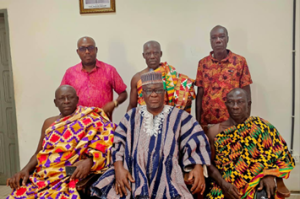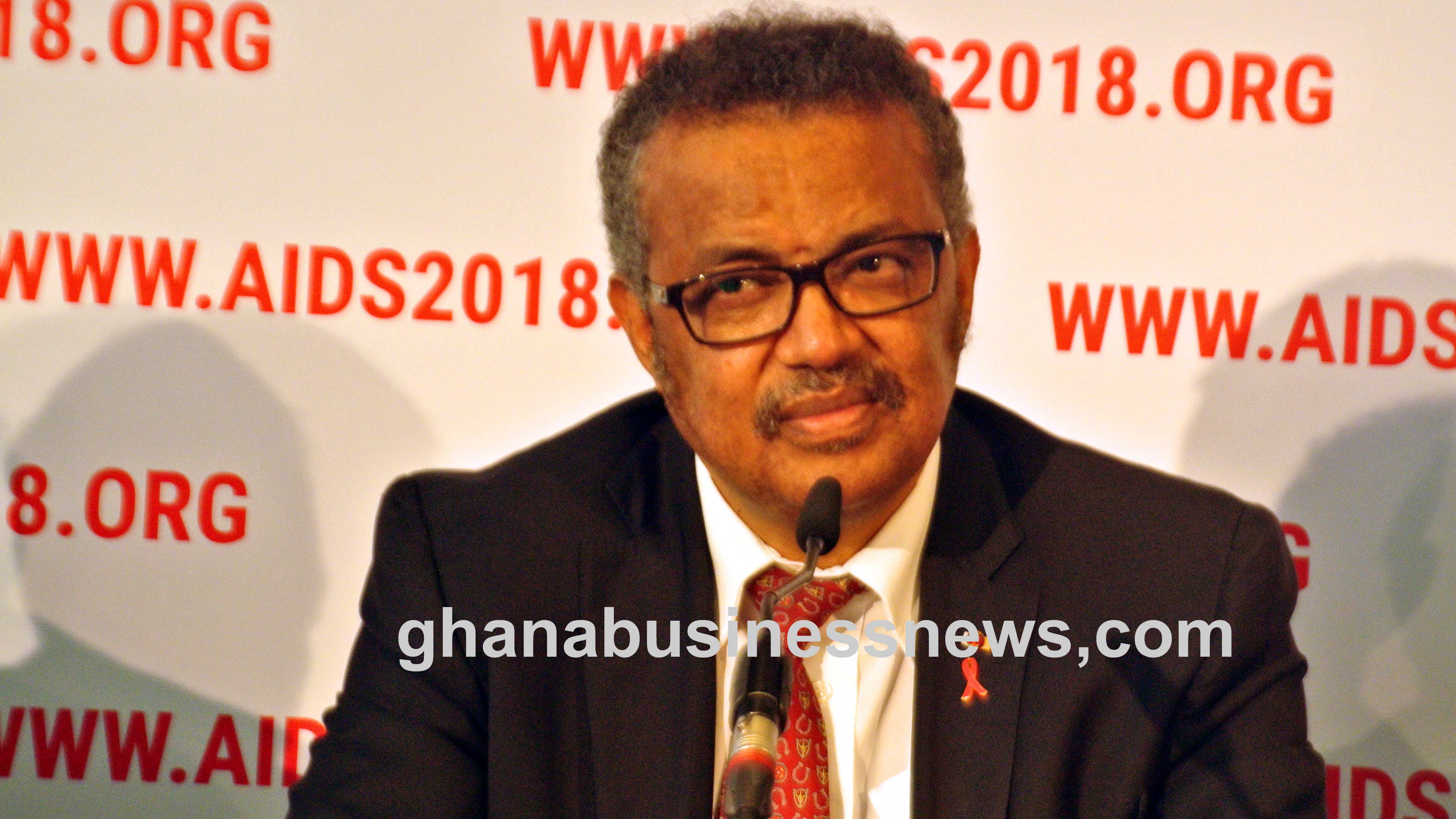
Tamale is preparing to welcome the world in grand style this September as Ghana takes the spotlight with the eagerly anticipated World Shea Expo 2025.
Scheduled for September 2–4, 2025 at the Modern City Hotel, Tamale, this landmark event is shaping up to be the most significant gathering yet for the country’s booming shea industry.
The expo is expected to attract over 8,000 participants, including shea producers, global buyers, leading investors, development partners and senior policy-makers. For three days, Tamale will become the epicentre of global discussions on trade, sustainability, innovation and empowerment in the shea sector.

Organised by Savannah Golden Tree Ltd. in collaboration with the Presidential Initiatives in Agriculture and Agribusiness (PIAA), Ghana Export Promotion Authority (GEPA), Ghana EXIM Bank, Ghana Cocoa Board (COCOBOD), Ghana Cocoa Coffee and Sheanut Farmers Association (COCOSHE), Northern Regional Coordination Council, Northern Development Authority and the West African Center for Shea Innovation Research-UDS, the expo is more than a trade fair.
It is a strategic platform for policy alignment, business networking and industry transformation, aimed at repositioning Ghana as a competitive player in the US$2billion global shea market.
This year’s theme, ‘Empowering Women and Youth-Led SMEs: The Role of Government and Financial Institutions’, reflects the urgent need to ensure that those who make up the backbone of the shea value chain—women and young entrepreneurs—move beyond survival to secure a meaningful stake in the industry’s prosperity.
The event will be officially opened by His Excellency, President John Mahama, whose anticipated presence underscores that shea is no longer a peripheral crop, but a central pillar in Ghana’s quest for inclusive economic transformation.
Ghana’s shea industry is rapidly gaining recognition as a strategic export commodity, with rising global demand for its use in cosmetics, food products and pharmaceuticals. This growth positions Ghana at a pivotal moment, offering an opportunity not only for economic expansion but also for the country to emerge as a global leader in the shea trade.
Francis Kojo Kwarteng Arthur, Esq., CEO of the Ghana Export Promotion Authority (GEPA), has emphasised the industry’s importance to Ghana’s economic future, stating:
“The shea industry is a strategic export frontier for Ghana. At GEPA, we are committed to driving value addition, market access and global competitiveness. I call on all stakeholders to seize the opportunity at World Shea Expo 2025 — and take shea to the world.”
His words capture the urgency and promise of this pivotal moment. With the World Shea Expo 2025 just weeks away, Ghana has the platform to showcase its value-added shea products, attract investment and strengthen its position in the global market. As the world’s appetite for shea continues to rise, this expo represents a defining opportunity for Ghana to take the next bold step toward becoming a global leader in the industry.

Driving value addition and boosting global competitiveness
At the heart of Francis Kojo Kwarteng Arthur’s statement is a clear and urgent agenda: Ghana must move decisively from being a supplier of raw shea nuts to a producer of high-value shea products.
For years, the majority of Ghana’s shea has been exported in raw form, with processing and branding done abroad—meaning that most of the profits, branding power and job opportunities in the value chain are captured outside the country. This practice has kept Ghana on the lower rungs of the US$2billion global shea industry, despite its role as one of the world’s largest producers.
His emphasis on value addition reflects a bold vision to change this narrative. By investing in local processing and quality-focused production, Ghana can not only increase export revenues but also create more jobs, particularly for women and youth who form the backbone of the shea value chain. In practical terms, this means transforming Ghana into a hub for premium, finished shea products—but how can this be achieved?
Practical steps for driving value addition
- Establishing shea processing clusters:
To make value addition practical and scalable, Ghana can establish regional processing clusters in shea-producing zones like Tamale, Bolgatanga and Wa. These clusters—equipped with modern refining equipment, packaging units and storage facilities—will allow local cooperatives and SMEs to process nuts into butter and other derivatives closer to the source, reducing costs and boosting production volumes. Efforts to revamp the Buipe Shea Factory is a good start. - Upgrading technology and skills:
Many small-scale processors still use traditional methods which, while culturally significant, limit output and product quality. Providing access to modern processing technology—such as mechanised grinders, solar dryers and automated filtration units—will help Ghanaian shea meet international cosmetic and food-grade standards. Alongside this, technical training programmes can upskill processors in areas like quality control, product consistency and export packaging. - Developing Ghanaian shea brands:
Ghanaian shea products need to be market-ready and branded for the global consumer. This means creating national and private labels that emphasise Ghana’s unique qualities—such as its commitment to organic farming, fair trade and sustainable sourcing. A “Proudly Ghanaian Shea” seal of quality, much like Ghana Cocoa Board’s mark for cocoa, could be introduced to enhance international trust and visibility. - Promoting product diversification:
Beyond traditional shea butter, Ghana can explore producing shea-based cosmetics (lotions, balms, soaps), nutraceuticals and shea oil for food use. These products can be sold in regional and international retail chains, both online and offline. Partnering with global beauty and food brands to co-create product lines will also help Ghanaian producers access premium markets.
Positioning for global competitiveness
His call for global competitiveness is more than a slogan—it’s a roadmap for transforming Ghana’s shea industry. Competing globally means focusing on quality, sustainability and branding to differentiate Ghana from other producers.
- National shea branding campaign:
Ghana can roll out a nationwide branding campaign for its shea, positioning it as “Ethical, Organic and Premium”. This brand identity will appeal to environmentally conscious and ethically driven consumers in Europe, North America and Asia—markets that are increasingly willing to pay more for products with a strong sustainability story. - Research and innovation:
Collaborations between industry stakeholders and institutions like the West African Center for Shea Innovation Research-UDS can drive research on new product applications (e.g., shea-based supplements or high-end skincare formulations) and innovative processing techniques that improve efficiency and quality. - International certifications:
To access premium markets, Ghanaian producers need global certifications such as Fair Trade, Organic, ISO standards and Good Manufacturing Practices (GMP). These certifications not only open doors to high-paying markets but also assure global buyers of the product’s quality and ethical sourcing. - Strategic partnerships:
Forming public-private partnerships with global cosmetics and food companies will provide Ghanaian producers with access to supply chains, marketing expertise and financing. This could include co-branding opportunities or contract manufacturing for leading international brands.
The role of World Shea Expo 2025 in this vision
The World Shea Expo 2025 in Tamale provides the perfect platform to turn these ideas into action. By showcasing locally processed, branded shea products, Ghanaian entrepreneurs can directly engage with global buyers, investors and policy-makers. Business-to-business matchmaking sessions at the expo can help SMEs secure contracts, while workshops on export readiness, financing and certifications can provide practical roadmaps for taking products to international markets.
Leveraging innovation for sustainable growth
For Ghana to firmly establish itself as a leader in the global shea industry, it must innovate not only in processing but also in agriculture, supply chain management and business practices. At World Shea Expo 2025, stakeholders will discuss how to build a more resilient and efficient value chain—from improved farming techniques to optimised distribution networks.
One of the keys to global competitiveness lies in sustainability. Shea production has the potential to be environmentally sustainable, supporting agroforestry and climate-smart agriculture. By integrating these practices, Ghana can build a reputation as a responsible supplier of shea, attracting environmentally-conscious buyers and investors worldwide.
Additionally, integrating financial institutions into the shea ecosystem will facilitate the access to funding required to modernise facilities, invest in technological advancements and empower local cooperatives. Financial institutions should prioritise small- and medium-sized enterprises (SMEs) in the shea sector, as these businesses will be pivotal in driving the industry’s expansion and ensuring its long-term viability.
Seizing the opportunity at World Shea Expo 2025
The World Shea Expo 2025 represents not just an event, but a moment of reckoning for the shea industry in Ghana. Francis Kojo Kwarteng Arthur’s call to seize the opportunity is a rallying cry for all stakeholders—producers, policy-makers, investors and NGOs—to join forces and propel Ghana’s shea industry onto the global stage.
Government policies, such as the 24-hour economy, will be crucial in providing a conducive environment for continuous production, processing and trade. As President John Mahama is expected to open the event, his administration’s commitment to transforming Ghana into a leading shea nation will be further underscored. GEPA’s role in value addition and market access remains indispensable.
This transformation will require both public-private collaborations and global partnerships. The success of World Shea Expo 2025 will not only showcase Ghana’s achievements but also lay the foundation for a sustainable, competitive and globally recognised shea industry.
Conclusion
The shea industry in Ghana holds immense potential to transform the country’s economic landscape. With the World Shea Expo 2025 fast approaching, Ghana is presented with a realistic opportunity to take the global lead in the shea industry.
The expo is more than just an opportunity to showcase shea products—it is a chance to establish the country as a global leader in the sustainable production of high-quality shea products. By focusing on local processing, building strong partnerships and embracing innovative technologies, Ghana can significantly increase the economic value of its shea industry and position itself as a premium supplier to international markets.
Value addition, particularly through local processing, will allow Ghana to capture a greater share of the economic value associated with the global demand for shea. Expanding market access through strategic trade agreements, collaborations with global buyers and engagement with new markets will ensure that Ghana remains competitive and relevant in the shea trade for years to come. Furthermore, through a focus on sustainability, gender empowerment and innovation, Ghana can secure its place as a responsible and competitive global player.
As Ghana takes shea to the world, the industry has the potential to create jobs, drive economic growth and elevate the country’s reputation on the global stage. World Shea Expo 2025 marks the beginning of a new era for the Ghanaian shea industry, one where the country not only meets the rising global demand but leads the way in transforming the global shea market.
The time is now for all stakeholders—farmers, processors, investors, government agencies and consumers—to unite and harness the power of this transformative opportunity. With the right investments, strategies and collaborations, Ghana can ensure that its shea industry is not just an economic driver but a global force for sustainable development and innovation.
Participants can register via the event website at: www.worldsheaexpo.com.
The post Comms and branding with Samuel OWUSU-ADUOMI: Leveraging shea as strategic export frontier appeared first on The Business & Financial Times.
Read Full Story























Facebook
Twitter
Pinterest
Instagram
Google+
YouTube
LinkedIn
RSS